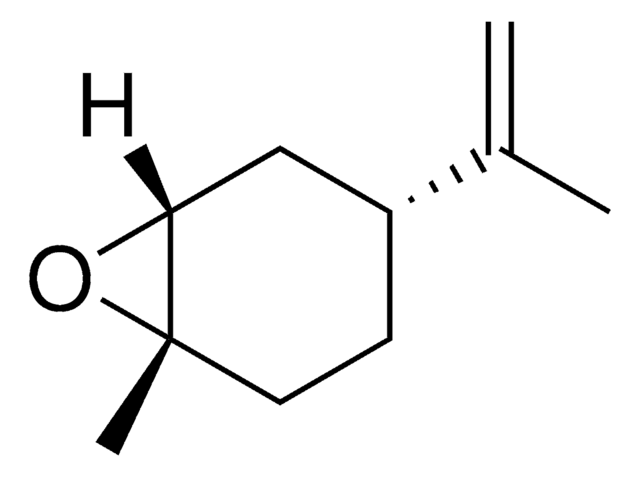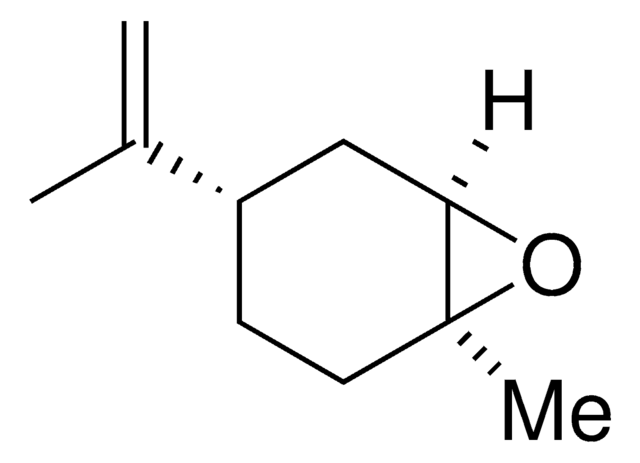923206
trans-(-)-limonene oxide
≥95%
Synonyme(s) :
(1R,4S,6S)-4-isopropenyl-1-methyl-7-oxabicyclo[4.1.0]heptane
About This Item
Produits recommandés
Niveau de qualité
Pureté
≥95%
Forme
liquid
Indice de réfraction
n/D 1.467
Densité
0.920 g/mL
InChI
1S/C10H16O/c1-7(2)8-4-5-10(3)9(6-8)11-10/h8-9H,1,4-6H2,2-3H3/t8-,9-,10+/m0/s1
Clé InChI
CCEFMUBVSUDRLG-LPEHRKFASA-N
Application
Produit(s) apparenté(s)
Code de la classe de stockage
10 - Combustible liquids
Classe de danger pour l'eau (WGK)
WGK 3
Point d'éclair (°F)
Not applicable
Point d'éclair (°C)
Not applicable
Certificats d'analyse (COA)
Recherchez un Certificats d'analyse (COA) en saisissant le numéro de lot du produit. Les numéros de lot figurent sur l'étiquette du produit après les mots "Lot" ou "Batch".
Déjà en possession de ce produit ?
Retrouvez la documentation relative aux produits que vous avez récemment achetés dans la Bibliothèque de documents.
Notre équipe de scientifiques dispose d'une expérience dans tous les secteurs de la recherche, notamment en sciences de la vie, science des matériaux, synthèse chimique, chromatographie, analyse et dans de nombreux autres domaines..
Contacter notre Service technique







